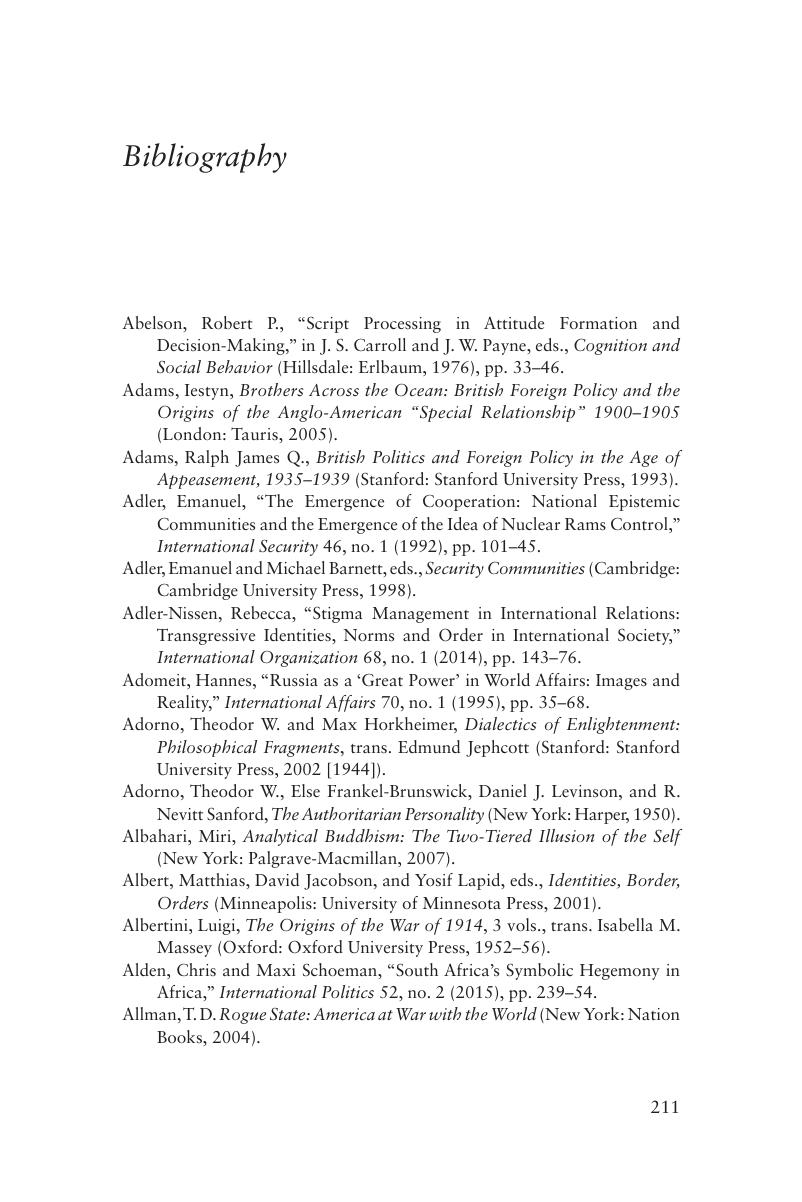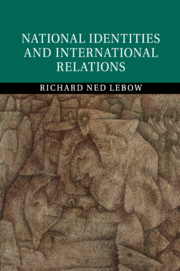Book contents
- National Identities and International Relations
- National Identities and International Relations
- Copyright page
- Dedication
- Contents
- Preface and Acknowledgments
- 1 Introduction
- 2 Ontological Insecurity
- 3 National versus Individual Identifications
- 4 Roles
- 5 Affiliations, Bodies, Biographies
- 6 Agency
- 7 Challenges for Constructivism
- Bibliography
- Index
- References
Bibliography
Published online by Cambridge University Press: 05 July 2016
- National Identities and International Relations
- National Identities and International Relations
- Copyright page
- Dedication
- Contents
- Preface and Acknowledgments
- 1 Introduction
- 2 Ontological Insecurity
- 3 National versus Individual Identifications
- 4 Roles
- 5 Affiliations, Bodies, Biographies
- 6 Agency
- 7 Challenges for Constructivism
- Bibliography
- Index
- References
Summary

- Type
- Chapter
- Information
- National Identities and International Relations , pp. 211 - 262Publisher: Cambridge University PressPrint publication year: 2016



